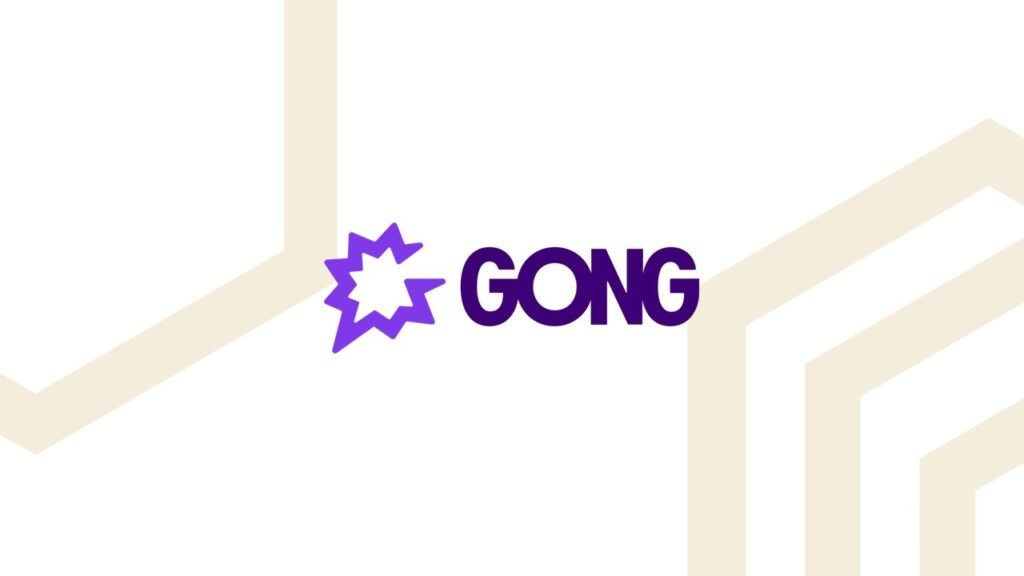Missed Forecasts Linked to Hiring and Pay Freezes; Companies are Using AI to Revamp Systems to More Accurately Predict Revenue
A Positive Sign for Macroeconomic Conditions in 2024, 68 Percent of Companies Are Increasing Forecasts for 2024
SAN FRANCISCO, Jan. 30, 2024 /PRNewswire/ — Gong, the Revenue Intelligence leader, today released new research that sheds light on the challenges companies face when developing their sales forecasts and revenue projections. More than 80 percent of companies missed their sales forecast in at least one quarter over the last two years, and the research shows that one of the key issues contributing to this is outdated tech and practices that many companies are still using to develop their forecasts. The study surveyed 2,015 business leaders at privately held companies in the US and UK.
A 2022 study in Social Science Research Network found that public companies’ earnings guidance is wrong about 70 percent of the time, suggesting that this problem isn’t isolated to private companies. Missed forecasts can cause stakeholders to lose confidence in a business’s ability to adapt to economic fluctuations, changing customer expectations, and competitive pressure. Advanced forecasting tools that incorporate technology like artificial intelligence can help increase the accuracy of these projections.
“The days of revenue leaders relying on spreadsheets and subjective and partial data to predict sales are over,” said Amit Bendov, Gong CEO and co-founder. “Companies struggle to forecast accurately in good times, and the problem is compounded when economic headwinds hit. AI’s ability to bring the voice of the customer and deal health to forecasting is changing the game to help leaders better understand and strategically plan their businesses.”
Key findings from the survey include:
- In the US and UK, 81 percent of companies surveyed missed their sales forecast for at least one quarter between the first quarter of 2021 and the third quarter of 2023.
- In the US, 84 percent reported missing a sales forecast in the last two years.
- A full third of respondents missed their forecast in the first quarter of 2023.
- Only 19 percent of respondents said that they had not missed a forecast over the last seven quarters.
- What impact does this have on businesses? Freezes on hiring, raises, and ultimately, layoffs
- In the US, 42 percent of respondents said that they’d had to put a freeze on hiring as a result of missed forecasts.
- 40 percent said they’d had to pause planned pay increases and bonuses.
- 28 percent of those surveyed said they’d had to let people go, indicating that this gap in forecasting is contributing to ongoing layoffs.
- One key culprit behind missed forecasts? Outdated and inaccurate tech and forecasting systems.
- When asked what the biggest hindrance to accurate forecasting was, 32 percent of US-based respondents said the technology that they use felt out of date.
- In a separate study, Gong found that forecasting using AI-powered predictive models delivered results that were 20 percent more accurate than projections made using CRM alone.
- 18 percent also believe they’re spending too much time on forecasting. AI-powered technologies can help deliver the needed levels of precision to boost forecast accuracy.
- Rapidly changing conditions are prompting teams to reevaluate how they handle forecasting.
- When asked if they were tackling their forecasting process differently this year than last year, 34 percent of respondents in the US said that they are or plan to forecast differently for the upcoming year.
- 35 percent said that they are investigating or have invested in new, more advanced technology and systems to forecast more accurately. This appetite for updated tech arrives as huge advancements in generative AI have made new, more accurate forecasting technology widely available to businesses.
- Revenue projections are looking up in 2024, with 68 percent saying they’re increasing revenue projections.
- In the US, the majority of respondents are projecting increased revenues for this year, while 16 percent are decreasing revenue projections, and 16 percent are keeping projections steady.
Work marketplace Upwork is one company that has increased its forecasting accuracy as it has grown, with its community of independent talent earning more than $3.8 billion in 2022 across more than 10,000 skills. “At Upwork, our sales forecasting process wasn’t providing the level of precision we needed as we entered a period of organizational change and growth amid an uncertain economy,” said Drew Korab, director of sales operations at Upwork. “We implemented a new, AI-powered solution that gives us the data, process, and insights to more accurately predict how our Enterprise business will perform in new logo acquisition. In the first three quarters we’ve used this solution, we reached 95 percent forecast accuracy, allowing us to deliver a stronger sense of confidence to our stakeholders.”
About the study:
This survey was commissioned by Gong. To develop this report, CensusWide surveyed 2,015 business leaders at privately held companies in the US and UK who say they forecast (1,015 in the US and 1,000 in the UK) between January 3, 2024 and January 9, 2024. 50 percent of all respondents reported that their company is best described as a tech firm.
About Gong:
Gong transforms revenue organizations by harnessing customer interactions to increase business efficiency, improve decision-making and accelerate revenue growth. The Revenue Intelligence Platform uses proprietary artificial intelligence technology to enable teams to capture, understand and act on all customer interactions in a single, integrated platform. Thousands of companies around the world rely on Gong to support their go-to-market strategies and grow revenue efficiently. To learn more about Gong, visit www.gong.io.
SOURCE Gong


